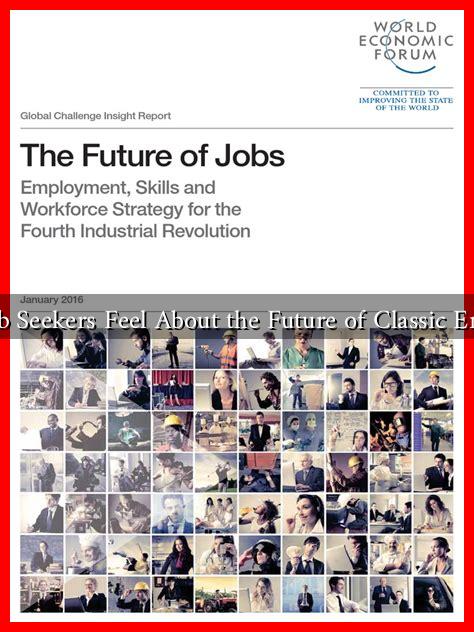-
Table of Contents
How Do Job Seekers Feel About the Future of Classic Employment?
The landscape of employment is evolving rapidly, influenced by technological advancements, economic shifts, and changing societal values. As we move further into the 21st century, job seekers are increasingly questioning the viability and desirability of traditional employment models. This article explores the sentiments of job seekers regarding the future of classic employment, examining their concerns, aspirations, and the factors shaping their perspectives.
The Changing Nature of Work
Classic employment, characterized by full-time positions with a single employer, has been the norm for decades. However, recent trends indicate a shift towards more flexible work arrangements. According to a report by the World Economic Forum, 84% of employers are set to rapidly digitalize working processes, which will significantly impact job structures.
Job Seekers’ Concerns
As job seekers navigate this changing landscape, several concerns emerge regarding the future of classic employment:
- Job Security: Many job seekers express anxiety about job stability in an era marked by automation and artificial intelligence. A survey by Gallup found that 60% of workers are worried about losing their jobs to technology.
- Work-Life Balance: The pandemic has shifted priorities for many, with a growing emphasis on work-life balance. Job seekers are increasingly looking for roles that offer flexibility, leading to a decline in interest in traditional 9-to-5 jobs.
- Career Advancement: The traditional career ladder is becoming less appealing. Job seekers are concerned about the lack of clear pathways for advancement in classic employment settings, prompting them to seek opportunities in gig work or entrepreneurship.
Aspirations for the Future
Despite their concerns, job seekers are also optimistic about the future of work. Many are embracing new opportunities and envisioning a more dynamic employment landscape:
- Remote Work Opportunities: The rise of remote work has opened doors for job seekers to explore positions beyond their geographical limitations. A report from FlexJobs indicates that remote job listings have increased by 50% since 2020.
- Gig Economy Growth: Many job seekers are turning to gig work as a viable alternative to traditional employment. According to a study by McKinsey, 36% of U.S. workers engage in gig work, driven by the desire for flexibility and autonomy.
- Focus on Skills Over Degrees: Employers are increasingly valuing skills and experience over formal education. Job seekers are adapting by pursuing skill-based training and certifications, making them more competitive in the job market.
Case Studies: Real-World Perspectives
To better understand how job seekers feel about classic employment, we can look at a few case studies:
- Maria, a Marketing Professional: After being laid off during the pandemic, Maria transitioned to freelance marketing. She appreciates the flexibility and control over her projects, stating, “I never want to go back to a traditional job.” Her experience reflects a growing trend among professionals seeking autonomy.
- John, a Recent Graduate: John entered the job market during a time of uncertainty. He expressed frustration with the lack of entry-level positions in his field. Instead, he opted for a gig platform to gain experience, highlighting the shift in how new graduates approach their careers.
Statistics That Matter
Several statistics underscore the changing attitudes of job seekers towards classic employment:
- According to a LinkedIn survey, 70% of professionals are open to remote work opportunities, even if it means leaving their current jobs.
- The U.S. Bureau of Labor Statistics projects that by 2028, 30% of the workforce will be engaged in gig work.
- A report from Upwork indicates that 41% of the U.S. workforce is now freelancing, a significant increase from previous years.
Conclusion: A New Era of Employment
As job seekers navigate the complexities of the modern job market, their feelings about classic employment are shaped by a blend of concerns and aspirations. While traditional employment models face challenges from automation and changing work preferences, there is also a growing acceptance of alternative work arrangements. The future of work is likely to be characterized by flexibility, skill-based hiring, and a blend of traditional and gig opportunities. For job seekers, adapting to these changes will be crucial in securing fulfilling and sustainable careers.
For more insights on the future of work and employment trends, visit Forbes.


